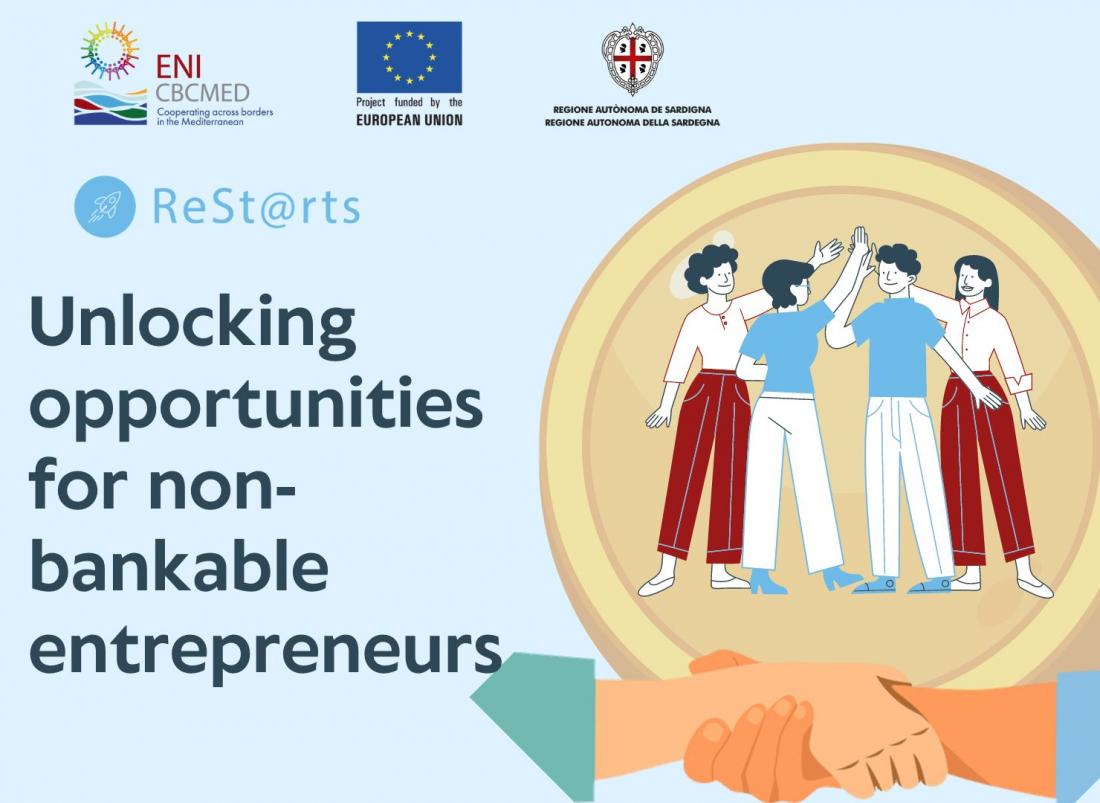ReSt@rts: fostering collaboration between international organizations to create financial inclusion strategies in the Mediterranean

Access to finance remains a significant barrier to business development in the Mediterranean region. ReSt@rts, is dedicated to empowering non-bankable young people and entrepreneurs and aims to break down this obstacle by fostering financial inclusion. This article will explore how international organizations can collaborate with local stakeholders to create effective financial inclusion strategies for non-bankable individuals and entrepreneurs in the Mediterranean.
Understanding the Challenge:
Financial inclusion refers to the accessibility and usage of financial services by all individuals, including those who are traditionally excluded from the formal banking system. In the Mediterranean, many aspiring entrepreneurs and individuals face barriers that prevent them from accessing financial services, inhibiting their ability to start or expand their businesses. These non-bankable individuals often lack collateral, credit history, or proper documentation, making obtaining loans from traditional financial institutions challenging.
Collaboration between International Organizations and Local Stakeholders:
To tackle the issue of financial exclusion, international organizations can collaborate with local stakeholders to create effective strategies that address the specific challenges faced by non-bankable individuals and entrepreneurs. Here are some key steps in fostering collaboration:
Conducting Needs Assessments:
Organizations all across the 6 Mediterranean countries, partners of ReSt@rts work closely with local stakeholders, including community organizations, NGOs, and government agencies, to conduct comprehensive needs assessments and research. This process involves understanding the financial landscape, identifying the barriers faced by non-bankable individuals and entrepreneurs, and assessing the existing support structures in place.
Co-Designing Solutions:
Based on the findings from the needs assessments, international organizations and local stakeholders can co-design tailored solutions that address the unique challenges of the Mediterranean region. These solutions include a booklet for microfinance providers, and a digital platform to connect entrepreneurs and microfinance providers, which also offers capacity-building programs opportunities that empower microfinance providers in their areas of challenges, improving the quality of their organizations’ internal processes.
Strengthening Local Institutions:
Collaboration should focus on strengthening local financial institutions, such as microfinance institutions and providers, by providing technical assistance, capacity building, and knowledge sharing. By enhancing the capabilities of these institutions, organizations can improve their ability to serve non-bankable individuals and entrepreneurs effectively.
Monitoring and Evaluation:
Continuous monitoring and evaluation are essential to measure the impact of financial inclusion strategies. By collecting data and feedback, partner organizations and local stakeholders can assess the effectiveness of their initiatives, identify areas for improvement, and make necessary adjustments to ensure long-term success. This will be fostered through the long-lasting ReSt@rts International Committee, which was formed back in December 2022.
Fostering financial inclusion for non-bankable individuals and entrepreneurs in the Mediterranean is a complex challenge, but collaboration between international organizations and local stakeholders can create a lasting impact. The ReSt@rts project, with its mission to support non-bankable young people, exemplifies the power of such collaborations.









